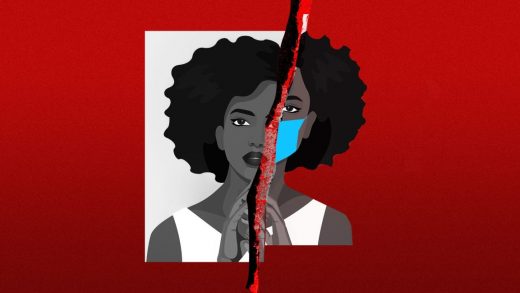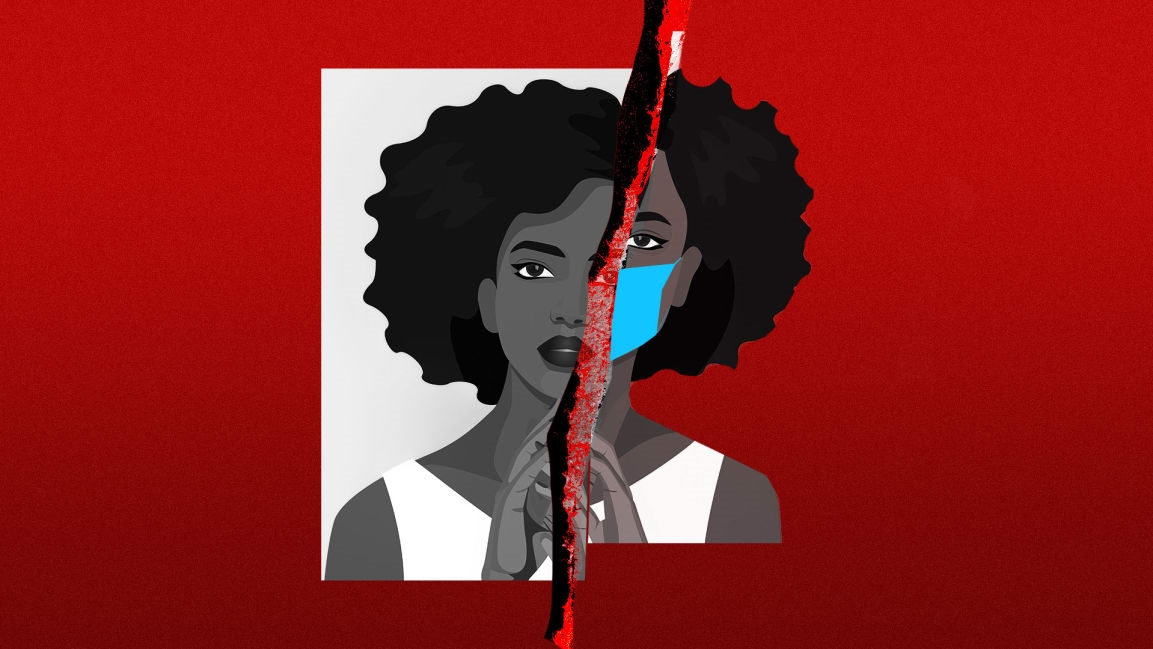You may be done with the pandemic but the pandemic isn’t done with you
The problem with trying to do everything right in a pandemic is that “everything” is way too many things, and the “right” way to do them changes almost by the day.
Staying vigilant against COVID-19—especially in its omicron era—is deeply annoying at best. Everyone is sick of it, and bone-tired because of it. Our fumes are running on fumes. We all just want to reach the Final Boss level of the pandemic already and move past it, preferably toward a way of life that feels like before. Until then, most people I know are continuing to calculate how close to before they can get while still doing as much of everything right as possible.
Other people, however, have lately begun arguing for a different approach in op-eds, Substacks, and appearances on Real Time with Bill Maher. These folks are taking a principled stand against . . . having to do anything at all to avoid either catching, detecting, or transmitting the novel coronavirus. They are so over COVID! This whole pandemic thing? They’re not fans, and unlike everyone else apparently, they are brave enough to say it.
But while a growing segment of talking heads may be done with the pandemic, the pandemic is not done with them.
“I’m done with COVID!” Bari Weiss declared right away on Bill Maher’s show this past weekend, with all the privilege of Paris Hilton’s apocryphal “Stop Being Poor” t-shirt.
The writer and podcaster, who once famously declared that she was done with the New York Times in similarly grand fashion, next enumerates all the phases of the pandemic she willingly participated in before deciding that enough was enough. (Yes, there is a Tiger King reference.)
What precipitated this emancipation from the shackles of caring about COVID? For starters, both Weiss and Maher feel betrayed by the promise of vaccines.
“We were told that you get the vaccine, and you get back to normal,” Weiss says, before adding, with the tone of someone asking to speak to the manager, “We haven’t gone back to normal.”
Like pretty much everyone, I also thought the vaccine was going to end the pandemic. I relished those glorious three or so weeks last summer when it actually felt like it was almost over. What bliss, to suddenly no longer feel pulled to do everything right! Then, of course, the delta variant hit like an atom bomb, showering breakthrough infections everywhere, and many of us reluctantly started wearing masks at the grocery store again. It was a special kind of torment to get so close to the promised land, only to have the map completely reconfigured.
But it makes no sense to channel the fury this false ending inspired into righteous anger at the very concept of continuing to fight the pandemic at all.
The fact that vaccines didn’t fix everything—that they merely made the people who take them exponentially far less likely to die from the virus—isn’t something Dr. Fauci or anyone “did” to us. It’s just another pandemic tragedy on top of all the others. Make plans, COVID laughs.
In addition to feeling duped by vaccines, Weiss feels hemmed in by restrictions. Speaking with Maher and gobsmacked New York Rep. Ritchie Torres, she lists three science-based reasons why public-safety precautions in 2022 are an utter farce. They are as follows: that cloth masks aren’t effective against omicron, that an asymptomatic COVID-carrier can get into a bar with a vaccine passport, and finally, that the current state of restrictions is going to be remembered by younger generations as a “catastrophic moral crime.” (Yes, that third point is presented as the product of “science.”)
Each of Weiss’s scientific points leave me with the same question, though: What would pretending that COVID-19 doesn’t kill thousands of Americans every day do to solve any of these problems?
The idea of being done with the pandemic hinges on the premise that everyone else is just overreacting. How could it possibly be an overreaction, though, if so many people are still dying? The day that Weiss appeared on Bill Maher’s show, January 21, no less than 3,846 Americans died of COVID. That’s nearly a thousand more deaths than 9/11, on one random day of the pandemic.
Weiss, for some reason, doesn’t like to discuss all the mass death that contributes to her being mildly inconvenienced all too frequently. When Rep. Torres brings it up, she responds with the silver lining that only 803 U.S. children have died from COVID so far. Just 800 dead children! Not exactly a reason for every state to emulate Florida’s laissez-faire approach (63,763 COVID deaths and counting), which Maher and Weiss both praise at length.
If some restrictions in some places are flawed or ineffective—which they unquestionably are—the solution isn’t to disregard all restrictions altogether. We don’t stop doing airport security just because it’s impossible to detect every threat and because our current approach to doing so is tedious. If cloth masks aren’t working against omicron, advocate for cheaper, easier access to N95 masks. If the possibility of asymptomatic carriers in public spaces is a concern, use your platform to push for more and better at-home testing options, so people can test regularly throughout the omicron wave.
As far as the catastrophic moral crime of inflicting trauma on children through safety restrictions, even though only several hundred have died from COVID so far, I’m sorry, but we are all coming out of this pandemic traumatized. It should be understandable to most reasonable people that reducing present inconvenience and future trauma is not the top priority when 3,846 Americans can still die from COVID in a day.
Declaring one’s self done with the pandemic casts everyone else as irrational hypochondriacs who simply choose not to be over it, and ascribes unflattering motivations for their compliance. Either we are sheeple who always do whatever is asked with no independent thought whatsoever, we’re too scared to leave the house lest we see our own shadow, or, most bafflingly, we want the pandemic to go on forever, for nefarious reasons that probably have to do with George Soros. Some people surely feel each of those ways, but the vast majority of us are more likely just trying to do our best in an endlessly awful situation.
I had developed my own personal omicron edition of what doing everything right entails at the start of 2022. Although I was nervous once again to go to the movies or dine indoors if I could avoid it, I still did normal-style things like ski and get a haircut (albeit while wearing masks.) In fact, I did both activities just days before COVID served me a sampler platter of symptoms, the timing of which may not have been unrelated to one of those activities.
The symptoms were mild, but only in the sense that I didn’t need to go to the hospital. I was run through with fatigue for days, fatigue like nothing I’d ever encountered before. Even the most minor task felt like a massive boulder with a jacked giant on the other side of it, pushing back against me. Mostly, I just laid around in the super cozy prison of my quarantine bed, watching movies, and letting time pass until I felt like I could work from home again. It took about six days.
For many reasons, not least because I have the comorbidity of asthma, I’m thankful my illness was so mild, and that my life is set up in such a way that I could comfortably endure it. Millions don’t have those luxuries. But I didn’t walk away from the experience regretting how diligently I strived to avoid getting COVID for 22 months, or how quickly and thoroughly I made pains not to transmit my COVID to anyone else, including my wife. If the most optimal version of getting COVID is having one’s life turned completely upside down for days on end, why wouldn’t anyone want to continue actively trying to avoid getting or giving it, no matter how infuriating those efforts can be?
Bari Weiss is not special because she is mad about the pandemic; she’s special because her response to that anger is sociopathic. Unless your circle of friends and loved ones is quite limited, people you know are going to keep getting the extremely infectious omicron variant, and people you know are going to keep trying to avoid getting it, in ways that may affect you.
This isn’t something you can just opt out of.
You can get mad about the uncertainty of having no end in sight. You can get mad at specific bad actors or lapses in judgment, like the price-gougers pushing expensive masks, or the White House’s failure to provide free at-home tests faster. You can get mad at prominent figures pushing misinformation, like the falsehood that 75% of all COVID deaths are from people who have four or more comorbidities, which give people false confidence. You can get mad at so many aspects of the pandemic and its response, but what you can’t do, even if you wanted to, is just wash your hands of it all like an overexposed fad. COVID is not Wordle. It may be rather annoying that everyone won’t stop talking about it, but if that’s the biggest problem the pandemic has dropped at your doorstep, maybe just enjoy your enormous good fortune quietly.
It’s impossible to do everything right in a pandemic. But if you think it’s too much of a burden to be asked to do anything, you are absolutely in the wrong.
Fast Company , Read Full Story
(33)



